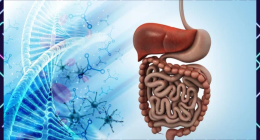Is the continuous blinking of the eye bothering you? Here is everything you need to know about an eye twitch and what causes it.
How often have you experienced a twitch or tickling sensation in your eyes? Have you ever wondered why that’s happening? An eyelid twitch, also known as a myokymia is an involuntary muscle spasm occurring in the eyelids. It can happen in both lids: upper and/or lower. It is painless in most cases and feels like a tug, however, the person having an eye twitch is able to feel that something is happening in their eyes.
What Causes An Eye Twitch?
Following are some of the other reasons that can cause an eye twitch:
- Fatigue
- Eye irritation/strain
- Side effects of some medications
- Sleep deprivation
- Influence of alcohol or other substances
- Presence of something in the eyes causing irritation
Also read: Myokymia: Prolonged screen time is one of the causes of eye twitching
Types Of Eye Spasms
The intensity and type of eye spasms vary. These can become a cause of great concern if left untreated. Let us understand the 3 main types of eye-spasm:
1) A Simple Eyelid Twitch: A mild throbbing sensation in upper or lower or both eyelids. Typically goes away on its own.
2) Essential Blepharospasm: This is more severe and usually starts with recurrent blinking of one or both eyes. It can lead to involuntary closure of both eyelids and in some rare cases, it can also involve muscles of the neck and the mouth. This can cause harm if medical attention is not provided to the patient.
3) Hemifacial Spasm: This causes involuntary closure of eyelids and involves muscles of mouth and neck, however only on one side of the face. It requires medical attention.
Some Other Causes
While the cause of an eye-lid twitch is given above, causes of Essential Blepharospasm and Hemifacial Spasm are more to do with the functioning of the brain. It is quite important to know when an eye-lid twitch required medical attention as delays can make a simple matter worse, hence if the following issues arise, one should contact a doctor immediately.
- Incessant drooping of eyelids persisting for a longer period of time
- Unusual redness, swelling and/or discharge from the eyes
- Eye-lid twitch being felt on other parts of the face
- Persistence of minor eyelid twitch for weeks
- Consistent and longer closure of eyelids with each spasm
Don’t miss: Eye twitching: Optician warns spasms could be a sign of brain and nervous system disorders
Ways To Treat An Eyelid Spasms
Some common methods of treating and easing eye-lid spasms at home are as follows:
- Reduced consumption of caffeine and alcohol
- Getting adequate and comfortable sleep
- Application of eye drops to prevent excessive dryness of the eyes
- Warm compression using cloth/cotton on the eyelids
Although the suggestions above are useful, they are in no way a substitute for proper medical care when it’s needed. Hence, one should be very careful when it comes to the matter of eyes.
This post first appeared on The Health Site





